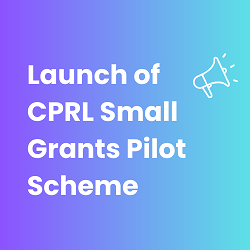You are here
- Home
- Research
- Theme 4: Health, wellbeing and resilience
- 4.08 Examining decision-making on the use of evidence-led prosecutions: including their effect on victims' satisfaction levels and subsequent re-engagement with the criminal justice system
4.08 Examining decision-making on the use of evidence-led prosecutions: including their effect on victims' satisfaction levels and subsequent re-engagement with the criminal justice system
Academic team: Anna Hopkins and Holly Taylor-Dunn
Policing partners: Merseyside Police
Status: Complete

Examining decision-making on the use of Evidence Led Prosecutions (ELPs) in Domestic Abuse (DA) and their effect on victims’ experiences, satisfaction levels and subsequent re-engagement with the Criminal Justice System (CJS).
Prosecuting DA remains problematic, with research suggesting 64% of cases are dropped at the point of arrest, with outcome 16 (victim does not support further action) accounting for 52.6% of all cases (McPhee et al, 2020). The increasing rate of attrition in DA cases is a key challenge for police forces throughout England and Wales (HMICFRS, 2021).One of the ways of reducing this rate of attrition is by means of an Evidence Led Prosecution: “If the victim of domestic abuse decides not to support a prosecution, police and prosecutors should consider whether it is possible to bring a prosecution without that support. This is called an evidence led prosecution" (HMICFRS, 2020).
There is a dearth of published research exploring how ELPs work in practice and what impact they have on victims, despite the fact ELPs have been advocated for many years in the UK. This project seeks to address the current gap in UK research by understanding how and when ELPs are used, and importantly, how this is experienced by victims. The potential for ELPs to narrow the gap between reported offences and cases prosecuted is therefore of direct benefit to the police.
This projects aims to build an evidence base on the use of ELPs in DA to improve the prosecution rate and help victims by establishing:
- the nature of cases taken forward as ELPs
- the characteristics of cases successfully prosecuted as ELPs
- the impact of ELPs on victims.
Specifically, the project will address the following research and practice questions by accessing the various forms of data outlined:
- Are there particular characteristics involved in cases that are prosecuted through the use of an ELP? How do these compare to DA cases prosecuted without the use of an ELP?
50 ELP v 50 non ELP police case files will be analysed
- How do ELPs affect DA victim satisfaction levels compared to those DA victims not assigned to an ELP?
Victim satisfaction surveys will accessed for ELP victims and a sample compared to non ELP victims
- What are the benefits and challenges of using ELPs?
10 CPS solicitors will be interviewed to establish their views on the benefits and challenges of employing an ELP for prosecuting DA.
- What are victims’ lived experiences of ELPs?
10 victims who have experienced of an ELP will be interviewed to seek their experiences of their cases being assigned to an ELP.
Anticipated benefits:
- By increasing understanding of how and when ELPs are used, this research will assist police forces to successfully pursue ELPs.
- This will result in a narrowing of the gap between reported offences and cases prosecuted, which will assist police in addressing attrition in DA cases.
- Understanding the experiences of victims whose cases have progressed as an ELP and what effect this has upon victim re-engagement is important in addressing issues of trust and confidence in the police.
Outputs
| Title | Outputs type | Lead academic | Year |
|---|---|---|---|
| Examining the use of Evidence Led Prosecutions in domestic violence and abuse cases | Final report | Hopkins, A | 2023 |
News
- New course launched on “Understanding PCSO powers” 14th March 2024
- CPRL Collaborative dates for your diary 28th February 2024
- Government backs new pet abduction law in pet theft crackdown 8th February 2024
Upcoming Events
Online Seminar: Trust and confidence in policing
Wednesday, May 22, 2024 - 13:00 to 14:30
Online Membership Group Meeting
Thursday, June 13, 2024 - 10:30 to 12:30
